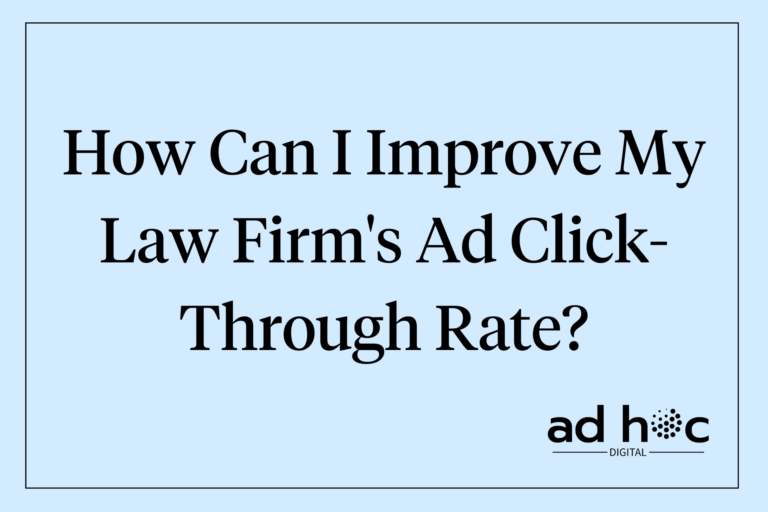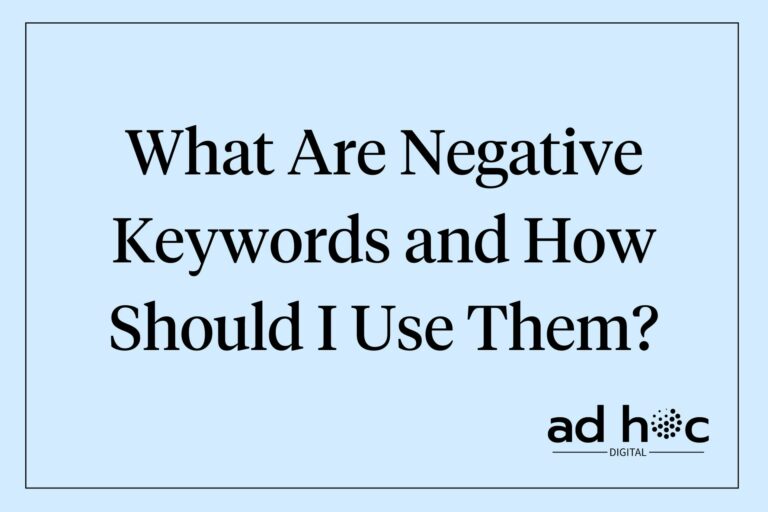What Are Retargeting Strategies and How Can They Benefit My Law Firm?
Retargeting is a powerful advertising strategy that allows law firms to re-engage potential clients who have previously interacted with their website or ads. By keeping your firm top-of-mind, retargeting can significantly increase brand awareness, conversion rates, and overall marketing efficiency. This detailed guide will explain what retargeting is, how it works, and how it can benefit your law firm.
To learn the basics of creating impactful campaigns, see our article on effective Google Ads campaigns for lawyers.
Understanding Retargeting
Definition of Retargeting
Retargeting, also known as remarketing, involves serving ads to users who have previously visited your website or engaged with your content. This strategy helps maintain visibility and reminds potential clients of your services as they continue their online activities.
How Retargeting Works
Retargeting works by using tracking codes or pixels placed on your website. When a visitor lands on your site, the tracking code adds a cookie to their browser. This cookie allows you to serve targeted ads to the visitor as they browse other websites or social media platforms.
Types of Retargeting
- Site Retargeting: Targeting users who have visited your website.
- Search Retargeting: Targeting users based on their search behavior and keywords.
- Social Media Retargeting: Serving ads on platforms like Facebook and LinkedIn to users who have interacted with your site or content.
For more on setting up tracking, visit conversion tracking for law firms.
Benefits of Retargeting for Law Firms
Increased Brand Awareness
Retargeting keeps your law firm’s brand in front of potential clients who have already shown interest. This repeated exposure helps reinforce your brand message and increases the likelihood of conversion.
Higher Conversion Rates
By targeting individuals who have previously engaged with your website or ads, retargeting ads are shown to a more qualified audience. This often results in higher conversion rates compared to cold outreach.
Cost-Effectiveness
Retargeting can be more cost-effective than traditional advertising methods because it focuses on individuals who are already familiar with your firm. This targeted approach maximizes your ad spend efficiency.
Enhanced Client Relationships
Repeated exposure to your brand through retargeting helps build trust and familiarity with potential clients. This can lead to stronger client relationships and higher retention rates.
For more on improving ad performance, visit improving Google Ads CTR for law firms.
Setting Up Retargeting Campaigns
Creating Audience Lists
- Google Ads: Use the Audience Manager in Google Ads to create remarketing lists based on website visitors, YouTube users, or app users.
- Google Analytics: Set up remarketing audiences in Google Analytics to create more refined lists based on specific behaviors or segments.
Segmenting Audiences
Tailor your retargeting messages by segmenting your audiences. For example, you can create different campaigns for users who visited your contact page versus those who only visited your homepage.
Implementing Tracking Codes
Add retargeting tags or pixels to your website to start building your audience lists. Ensure that the code is correctly installed on all relevant pages to track user behavior accurately.
For more on setting up campaigns, visit getting started with Google Ads for lawyers.
Types of Retargeting Strategies
Site Retargeting
Site retargeting focuses on users who have visited your website. By showing ads to these visitors as they browse other sites, you can remind them of your services and encourage them to return and convert.
Search Retargeting
Search retargeting targets users based on their search behavior and keywords. This strategy allows you to reach potential clients who have demonstrated interest in legal services through their search queries.
Social Media Retargeting
Social media retargeting involves serving ads on platforms like Facebook and LinkedIn to users who have interacted with your website or content. This approach leverages the extensive reach of social media to re-engage potential clients.
For more on optimizing performance, visit A/B testing in Google Ads for lawyers.
Best Practices for Retargeting
Ad Creative and Messaging
Craft compelling and relevant ad creatives that resonate with your target audience. Use clear calls-to-action and highlight unique selling points to encourage conversions.
Frequency Capping
Avoid ad fatigue by setting frequency caps on your retargeting campaigns. Limiting the number of times an ad is shown to the same user can prevent annoyance and improve ad effectiveness.
Personalization
Customize your retargeting ads based on user behavior and segmentation. Personalized ads that address specific needs or interests are more likely to convert.
A/B Testing
Continuously test different ad variations to determine what works best. A/B testing can help you optimize your ad creatives, messaging, and targeting for better performance.
For more on creating effective ad copy, visit effective Google Ads copy for lawyers.
Monitoring and Optimizing Retargeting Campaigns
Tracking Performance Metrics
Monitor key metrics such as click-through rate (CTR), conversion rate, and return on ad spend (ROAS) to evaluate the effectiveness of your retargeting campaigns. Use these insights to make data-driven decisions.
Adjusting Bids and Budgets
Optimize your bids and budgets based on campaign performance. Increase bids for high-performing segments and reduce spend on underperforming ones to maximize ROI.
Continuous Improvement
Regularly update and refine your retargeting campaigns to keep them fresh and effective. Continuous optimization ensures that your ads remain relevant and impactful.
For more on making data-driven adjustments, visit tracking Google Ads performance for lawyers.
Conclusion
Retargeting strategies offer significant benefits for law firms by increasing brand awareness, improving conversion rates, and maximizing ad spend efficiency. By understanding how retargeting works, setting up effective campaigns, and following best practices, your law firm can re-engage potential clients and achieve better results.
Additional Resources
- Effective Google Ads campaigns for lawyers
- Improving Google Ads CTR for law firms
- Tracking Google Ads performance for lawyers
- A/B testing in Google Ads for lawyers
- Effective Google Ads copy for lawyers
- Google Ads for client acquisition law firms
Found this article useful? Subscribe to our weekly newsletter for more great content. To learn more about us, fill out the form at the bottom, and we’ll be in touch soon.



